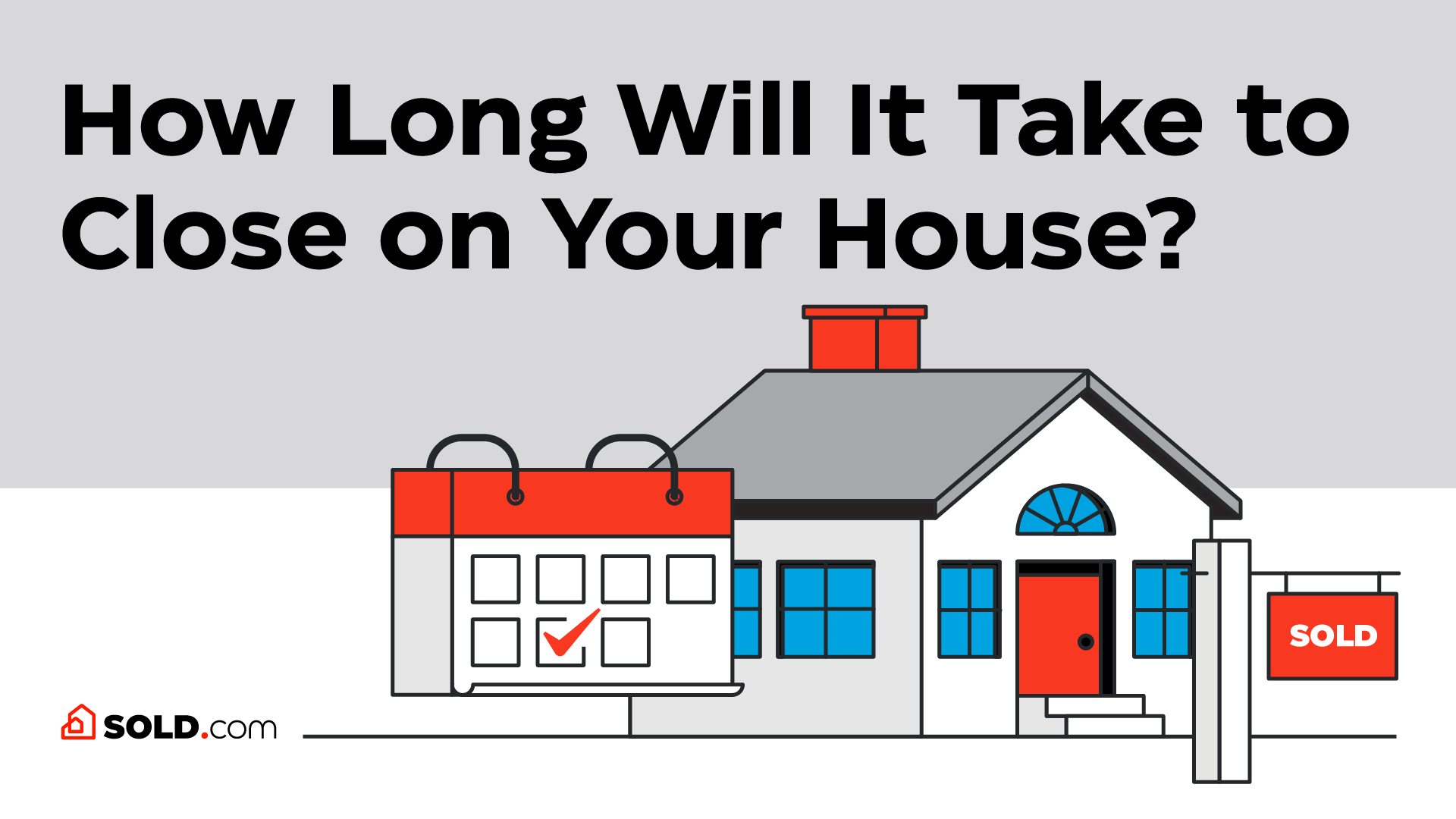
Whether you’re selling your own property or purchasing the home of your dreams, it’s only natural to feel excited about the closing process. You want to finalize the deal, complete the formalities, and get started on the next stage of your life. The question is, how long does it take to close on a house, exactly?
The timeline for the real estate closing process can vary, depending on a number of different factors, from loans to mortgages to lenders. We’ll outline some of those considerations here, and also mention some of the issues that can lead to a home closing delay.
As ever, you can learn more about selling your own property by requesting a FREE seller’s report from SOLD.com. Get yours today!
How Long Does it Take to Close on a House without a Mortgage?
Frankly, the thing that tends to elongate the home closing process is the participation of a mortgage lender. Some real estate transactions, including cash offers and iBuyer transactions, don’t require the presence of a lender. These transactions are far simpler, and as a result they can be quite quick. Sometimes, it’s possible to close in as little as seven to ten days.
But of course, these are the exceptions to the rule. Most of the time, whether you’re buying or trying to get your home sold, you’re going to have a mortgage lender to contend with.
How Long Does It Take to Close On A House When a Mortgage Lender is Involved?
In transactions involving a mortgage lender, you can anticipate the closing process taking around 30 days.
Indeed, most standard, federally backed mortgage programs are able to close in 30 days or less… but there can be some variations. You’ll probably close faster if the buyer gets pre-approved before making an offer. And some special real estate loan programs, including those that offer down payment assistance to first-time home buyers, can take a little longer, maybe up to 45 days or so.
What Happens in Those 30 Days?
When you’re champing at the bit to buy a place or to get your place sold, you may have little patience for the 30-day waiting period before closing. But of course, there are a lot of important things that happen during that window, including:
- Home appraisal
- Home inspection
- Repairs and renovations following the inspection
- A final walkthrough
- Completion of the mortgage underwriting process
Of course, this window of closing time can also provide the seller a little room to pack, move, clean, and make sure the home is ready for the final walkthrough.
Potential Delays to the Closing Process
We mentioned above that when the home buyer gets pre-approved for a loan, it can expedite the closing process… but what about the factors that delay the closing process? There are a few potential hurdles to be aware of.
- The lender orders an appraisal, and the appraised amount comes in lower than the agreed-upon sale amount.
- The buyer’s credit report turns up some unexpected debts or other issues.
- During the title search, a lien and/or unpaid taxes are found on the home
- There is a marital change noted for the buyer or seller
- There are major changes made to the estimated fees in the loan
- There are issues or delays related to the inspection or to the associated repairs
These are just a few examples of little snafus that can slow down your real estate closing.
Learn Additional Home Selling Tips
So how long does it take to close on a house? To summarize, it’s impossible to predict exactly how long closing on your home will take. A number of factors are involved, including the presence of the lender, the results of the appraisal, the type of loan program chosen by the buyer, and beyond. There are also some delays that can impede your progress, many of them avoidable but some not so much. With all things being equal, though, home buyers and sellers can usually anticipate a closing transaction will take around 30-45 days – about a month or so.
Do you have additional questions about the closing or home selling process? Or would you simply like to receive some individualized home selling tips? Claim your SOLD.com seller’s report today. In it, you’ll find custom recommendations on how best to pursue the listing of your home. Specifically, we’ll give you an unbiased suggestion of whether you should list with an agent, sell to an iBuyer, or something else. Don’t delay in claiming your SOLD.com report right away!

